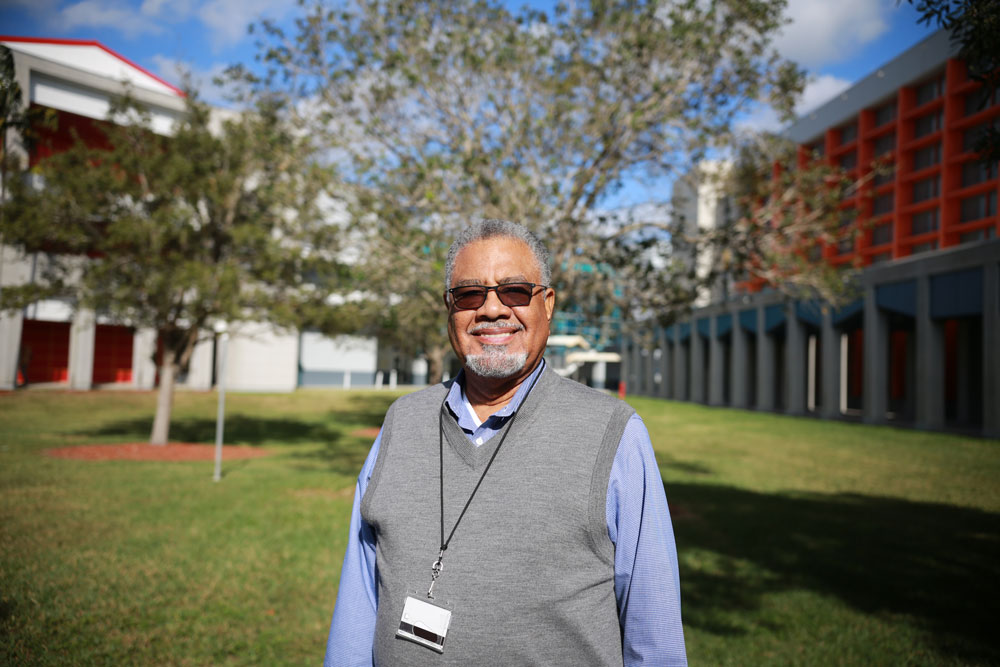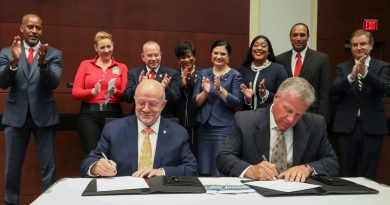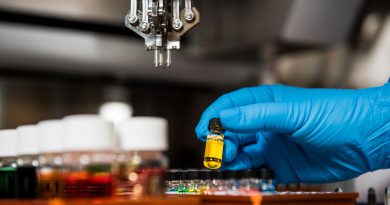Homestead Campus Receives Five Year Grant From The National Science Foundation
Homestead Campus was awarded more than $800,000 in funds from the National Science Foundation to develop their ongoing research project, Step 2 STEM.
The project will award 60 scholarships per year to incoming freshmen during a five-year period that want to study in the Science, Technology, Engineering and Mathematics program.
According to the Bureau of Labor Statistics, STEM-related jobs are expected to grow by more than nine million by 2022.
“We are looking for students that want to embark on a STEM career pathway, but do not see the [financial] possibility,” said Carlos Archibald, director of the Strategic Improvements for Students-STEM at Homestead Campus and the main author of the grant.
Homestead Campus hopes to use the grant to recruit STEM students from neighboring high schools such as Homestead Senior High School, South Dade Senior High School, Medical Academy for Science and Technology @ Homestead and Miami Southridge Senior High School.
The project is divided into three phases.
The first phase, Step In, will provide funding to improve core courses like math and science. Along with their regular curriculum, students will take a student life skills course to help them with time management, study habits and developing positive behaviors that will strengthen their learning experience.
Students will then proceed to the next phase, Step Up, where individuals will be encouraged to participate on campus in various groups and extracurricular activities. A large portion of this phase is improving ways for STEM students to connect with each other, such as through the SIS-STEM department at Homestead Campus. At that site, students are provided opportunities to collaborate with their peers through projects like the campuses Peer-Led Team Learning program. They will also receive tutoring in challenging STEM subjects.
The last phase, Step Out, will focus on the students’ futures outside of MDC. During their last two semesters, students will take field trips to universities and listen to presentations from professionals in the STEM field as well as have access to scholarships to four-year institutions.
The project will have similarities to another academically-rigorous program at MDC like the Honors College that provides financial assistance to its cohort so students are able to concentrate on their studies. The Honors College awards its students a scholarship that pays for courses during the fall and spring semesters, a stipend and a voucher for textbooks.
“Our goal is to supplement [the student’s] financial package from FAFSA, so they will not have to work and have more time to study,” Archibald said. “We want to analyze their behavior when they have the money, time and resources to succeed, and see if there is a change in behavior and academic performance.”
For now, the program will be exclusively housed at Homestead Campus. However, that may change.
“All of the [MDC] campuses are constantly collaborating with each other, and if we were to identify and discover the best practices we’ve used in this program, we would be sharing that information with other campuses as well,” said Homestead Campus President Jeanne Jacobs. “It could lead to those campuses implementing the best practices [for STEM students].”




